‘Eat What You Grow’: Homemaker Earns Rs 50 Lakh/Year Selling Native Seeds to Gardeners
Chandana Gade co-founded Seedbasket Agro Services with her husband Naveen, to source native seeds from the villages and make them available to urban gardeners looking to grow their own vegetables.
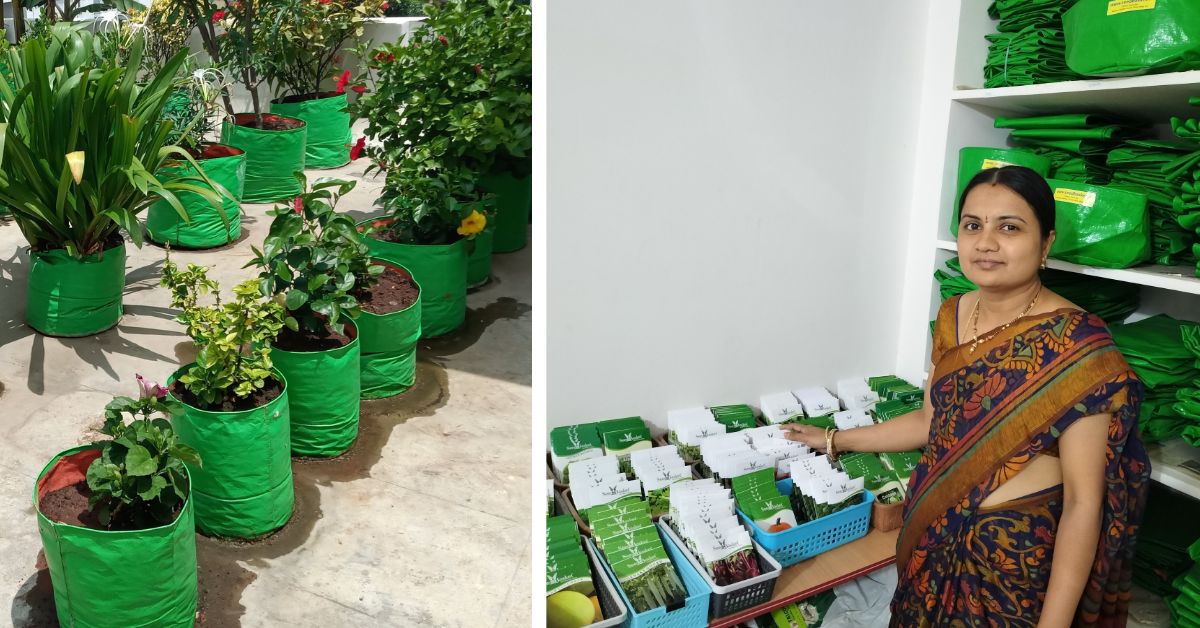
After giving birth to her daughter in 2014, Chandana Gade wanted to raise her by feeding her rice and organic green leafy vegetables. But while living in the city, she doubted the vegetables available in the market.
“At the same time, we came across news reports of farmers using contaminated drainage water to grow leafy vegetables, and use chemical fertilisers and pesticides as well. These days, children suffer from a number of diseases at a young age because of the kind of food they eat. We did not want to serve toxic food to our daughter,” the 36-year-old Hyderabad resident tells The Better India.
Born to a farmer family in the Khamman district of Telangana, she grew up eating homegrown vegetables and wished the same for her daughter. So, she started looking for native varieties of seeds to cultivate at home.
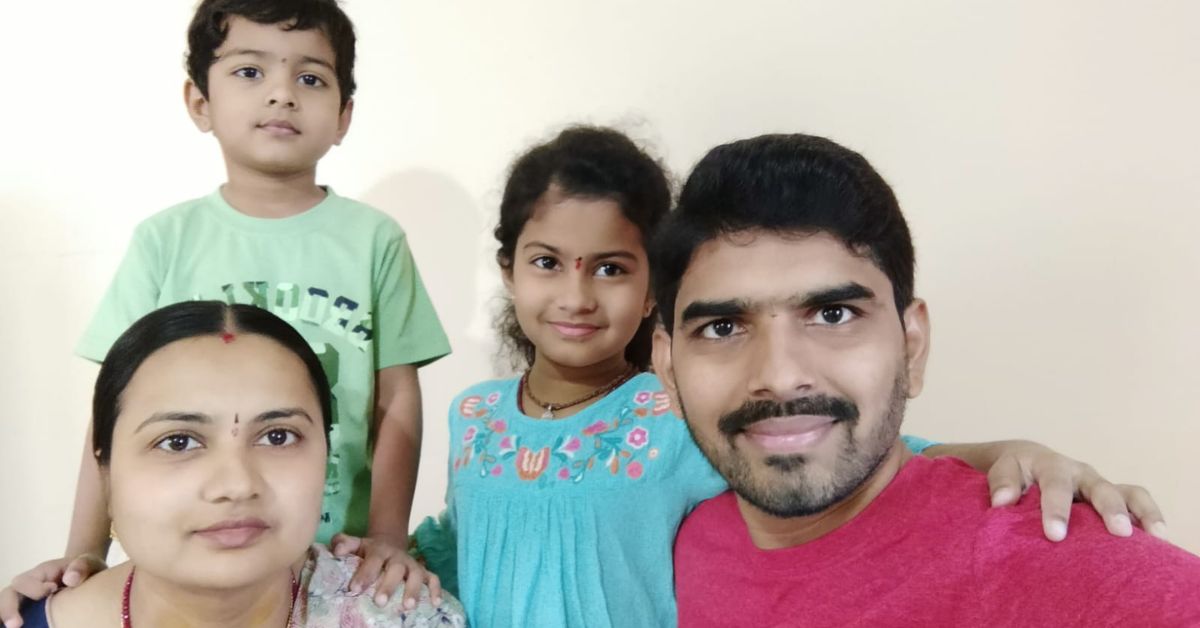
While doing so, Chandana and her husband Naveen Gade visited numerous local and online markets, only to find that there is a lack of a proper dedicated market for desi (indigenous) seeds.
“We could only find hybrid seeds, which are not good for health. We found some native seeds on e-commerce websites but their quality was not good,” Naveen, a software engineer, tells The Better India.
This is when Chandana saw a business opportunity, and to address the gap, she co-founded ‘Seedbasket’ along with her husband in 2016. Considered one of India’s leading e-commerce marketplaces, her startup provides native seeds of vegetables, fruits, flowers, grow bags, and cow dung cakes — nearly 200 products that are helpful for home gardening.
With their startup, they sell at least 150 native seed varieties of exotic fruits and vegetables such as fenugreek, broccoli, beetroot, white bitter gourd, ash gourd, sorrel leaves, red amaranth, dolichos bush, yellow cucumber, alpine strawberry, yellow cherry tomato, and red okra.
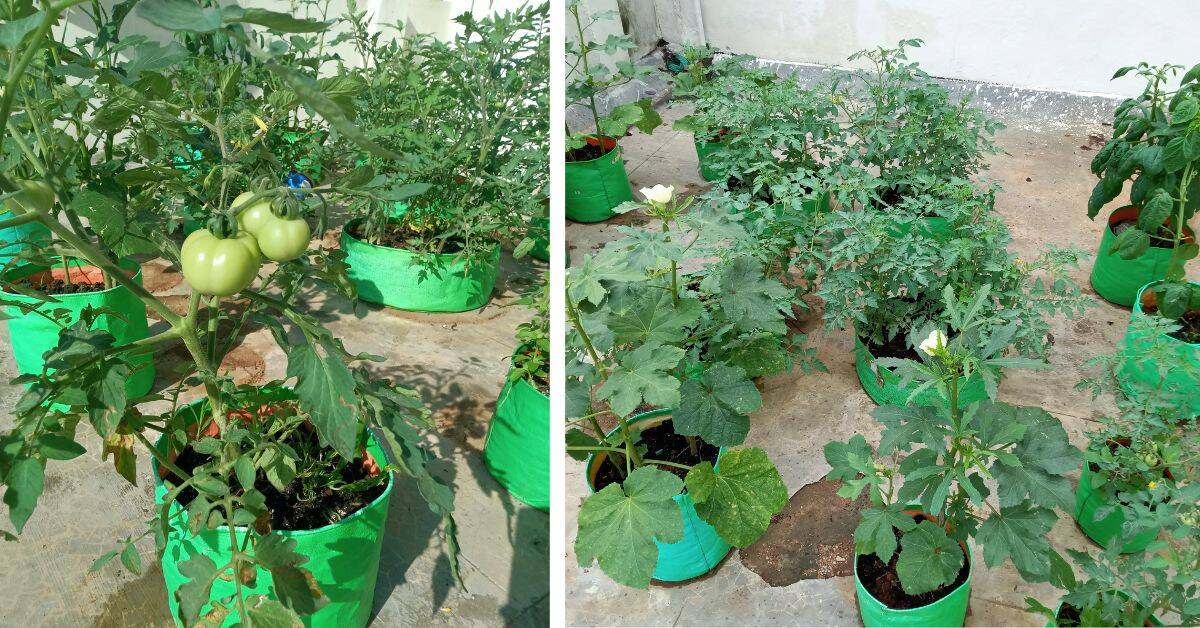
Introducing village learnings in city life
The couple began sourcing native seed varieties from farmers back in their hometown and started growing vegetables like spinach, coriander, and mint on their 10 x 4 sq ft balcony.
“As kids raised in villages, we do not remember buying vegetables for our consumption. We grew what we ate in our backyard. Today, we are able to provide a similar setup to our daughter. Now living in a city, we never buy green vegetables from the market for our consumption,” says the MCA graduate Chandana.
For Chandana, among other challenges was to source good quality native seeds from reliable suppliers and farmers. So, she went back to her district and tied up with a few farmers to procure seeds. One of them is Babu Rao, who has been supplying native varieties of seeds such as chukka kura (green sorrel), spinach, and litchi to her for the past four years.
Supplying seeds is equally beneficial for Babu. “Earlier, I would let the seeds rot on the field after harvesting the produce. It would be consumed by cows. Now, we collect seeds from the leftover produce and earn an additional income of up to Rs 50,000 every three months,” he tells The Better India.
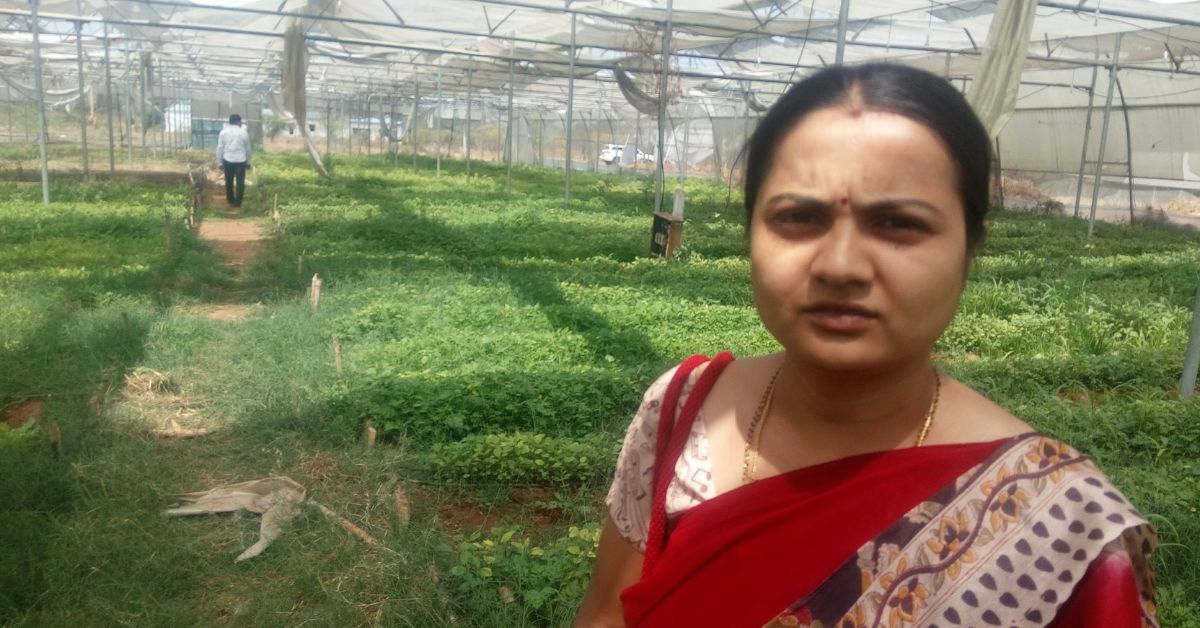
Apart from procuring seeds from a couple of farmers, Chandana gets seeds from their own farmland in the city and other reliable vendors from different parts of India.
Growing vegetables on the balcony and business in a room
Although farming was not new for her, growing vegetables in a limited space of a balcony was challenging. “We knew the basics of farming but urban farming is different from what we saw growing up in our villages. Every plant requires good sunlight, which is a little difficult to get on a balcony in a city. It affects the growth of vegetable leaves,” she says.
She adds, “For instance, the size of spinach that you get in the market is bigger but you will not get that size while growing it at home. This is also because you do not add additional chemicals and nutrients, but isn’t it good at the end because you are not getting the artificial size?”
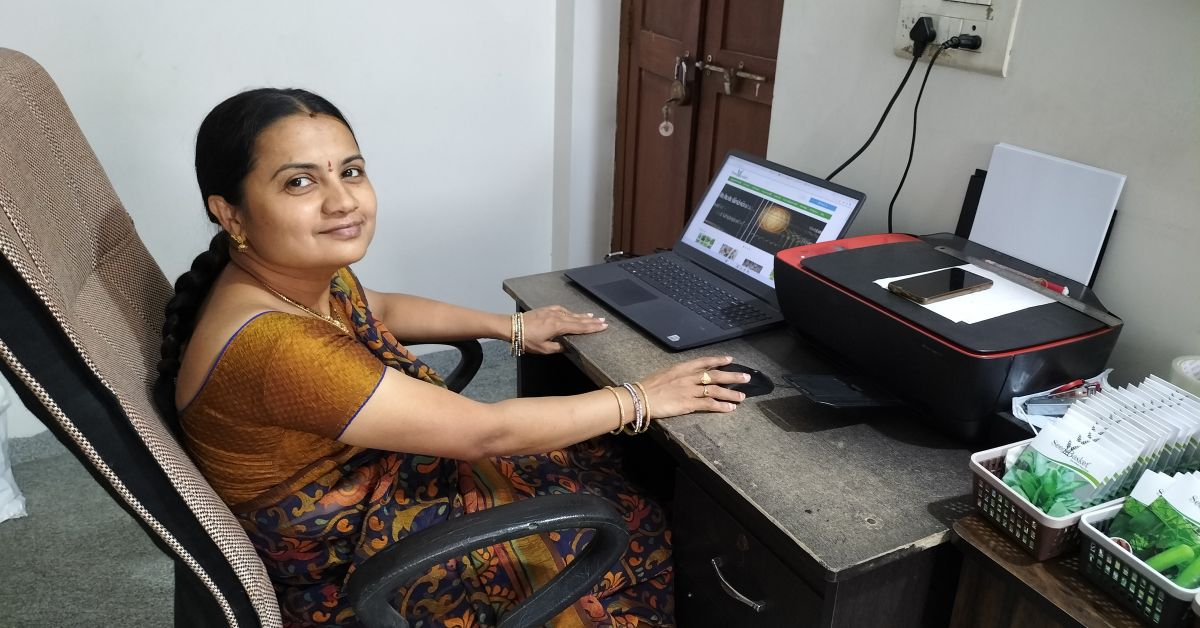
Before starting the venture, Chandana researched and attended home gardening classes in Hyderabad for six months. She wanted to understand the right procedure to prepare the potting mix, natural ways to control pest attacks, how to make compost from kitchen waste, and how to add nutrients like eggshells and coffee powder to boost vegetable growth in a balcony.
She also wanted to spread this knowledge to other urban gardeners, and this is the reason, she says, why she provides an instruction manual for every seed variety bought from her website. The manual covers basic but important details on soil requirements for each crop, its sowing season, container specification, harvesting period, kind of pest repellents and compost to be used.
After research, Chandana not only started to grow vegetables on her small balcony but also dedicated one of her 2BHK rented rooms to growing her business. Initially, the couple started with two orders a month, but now they get more than 1,000 monthly orders and cater to over 25,000 customers across the country. Their maximum customers are from the states of Karnataka, Telangana, Maharashtra, Tamil Nadu, and Rajasthan.
What started with an investment of Rs 1 lakh, from one room of their apartment, today clocks an annual turnover of up to Rs 50 lakh, says Chandana.
Edited by Pranita Bhat
If you found our stories insightful, informative, or even just enjoyable, we invite you to consider making a voluntary payment to support the work we do at The Better India. Your contribution helps us continue producing quality content that educates, inspires, and drives positive change.
Choose one of the payment options below for your contribution-
By paying for the stories you value, you directly contribute to sustaining our efforts focused on making a difference in the world. Together, let's ensure that impactful stories continue to be told and shared, enriching lives and communities alike.
Thank you for your support. Here are some frequently asked questions you might find helpful to know why you are contributing?














